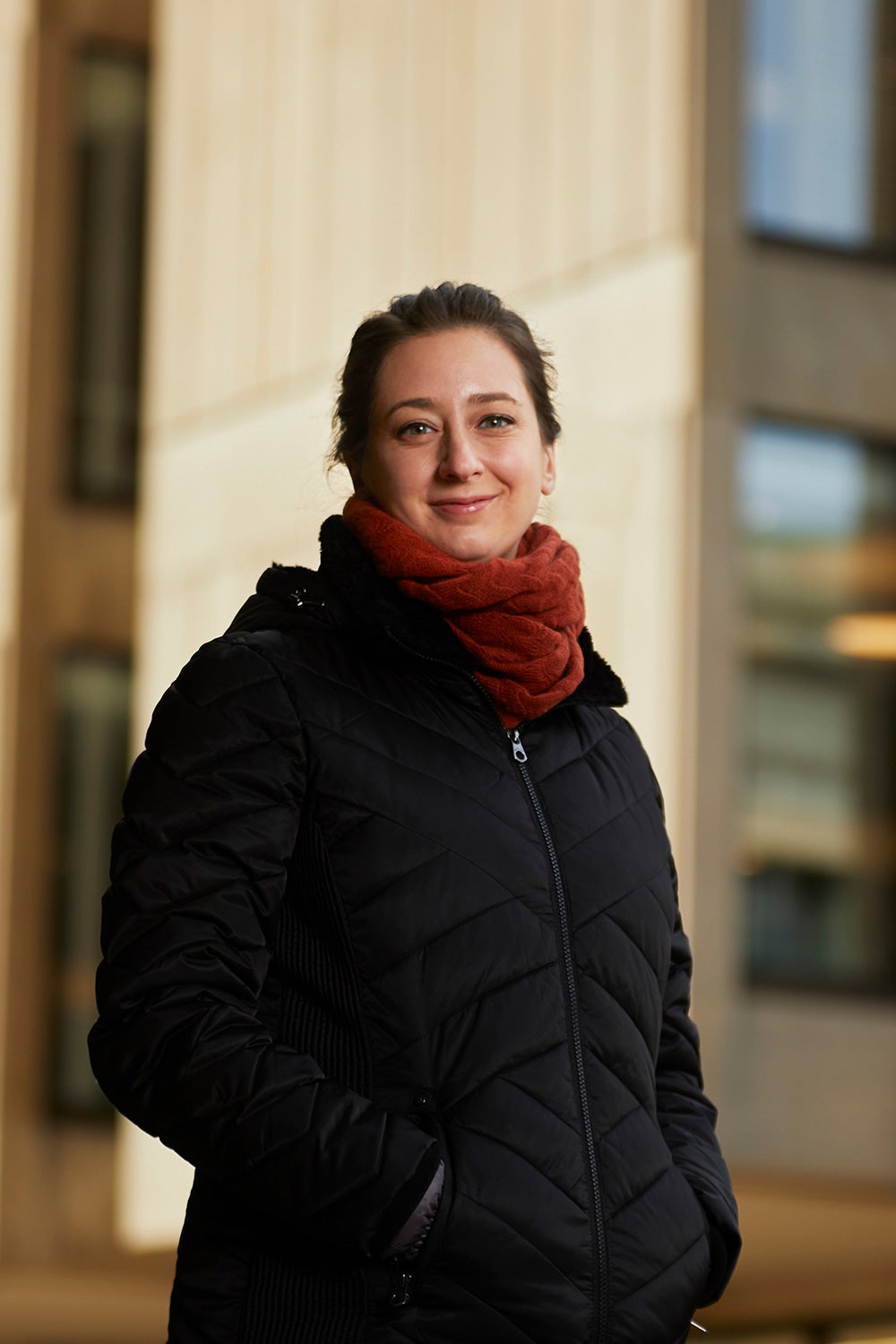Heather Mumford
Harvard T.H. Chan School of Public Health archivist

“As the Harvard T.H. Chan School of Public Health’s dedicated archivist at the Center for the History of Medicine, my responsibilities are to identify and acquire records that reflect and impact the research and teaching mission of the School. The faculty, staff, and students are creating important records all the time that speak to the lasting impact of the first professional public health training program in America. They may be obvious things like the research that leads to significant discoveries, but they could also be the minutes of a department meeting that tell the story about how the teaching of public health has evolved over time.
Our archives are open to everyone, and we have researchers coming to us from across the globe. One, for example, has been looking at the evolution of the Department of Epidemiology since 1913. Because of the COVID-19 pandemic, another hot topic right now is vaccines—people are asking us, “What’s the public perception of vaccines over time? How have people of color been impacted by vaccine research? What’s the history of vaccine hesitancy?” Our hope is that the past is informing the future so we can build on what we have already learned.
Since the campus closed last spring, I’ve been providing guidance to a number of people who’ve been in their roles for a long time and are taking voluntary early retirement; they’re opening up cabinets for the first time in years and finding files and materials that have dictated their work over their time at the School. Often, we’re our own worst enemy with our stuff—we don’t see the value of our own work that could be really useful to others. Marie Kondo [author of The Life-Changing Magic of Tidying Up] is so wonderful until she infiltrates someone’s records. When someone tells me they want to “Marie Kondo” their office, I tell them, “Wait, don’t do it!”
I have also created focus groups with students, who have traditionally been underrepresented in our archives. I’d like to find a way to represent the priorities and activism of Harvard Chan School students and represent as many voices as possible from the community. It’s important to keep asking, “Who is not documented in our history?” I’d like to see more representation from our faculty of color, from our LGBTQ+ community, more about the history of sustainability. Just pick a topic these days—there’s so much going on. I want to be receptive to what the Harvard Chan School community sees as valuable and interesting, and make sure it’s saved.”







